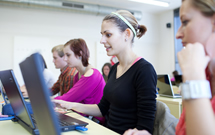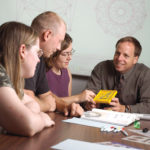The world is changing in remarkable ways, and the pace of this change is only accelerating. Thanks to unprecedented advances in technology, society continues to evolve at an exponential rate. The rapidity of change has led to dramatic shifts in all aspects of life, from how people communicate and collaborate to how they solve problems, create projects, and consume content (Sheninger, 2019).
The Fourth Industrial Revolution is upon us, and it is drastically different from the previous three, with the hallmark of this period being the momentous evolution of digital technology. The Fourth Industrial Revolution is defined as “a fusion of technologies that is blurring the lines between the physical, digital, and biological spheres.” Rapid advances in artificial intelligence, robotics, the internet of things, and biotechnology characterize this revolution.
This high-speed evolution of technology has drastically changed the way we communicate. Social media platforms have revolutionized how people interact, allowing them to connect with each other no matter where they are in the world. People can now instantly share their thoughts and experiences with people worldwide, creating a truly global community. This phenomenon has enabled people to collaborate on a global scale, working together to solve complex problems and create far-reaching projects that would have been impossible in the past.…Read More

 A quick, breathtaking, integrated mission statement that explains how Dr. Adams and the CVUSD community foster meaningful 21st century learning.
A quick, breathtaking, integrated mission statement that explains how Dr. Adams and the CVUSD community foster meaningful 21st century learning.


